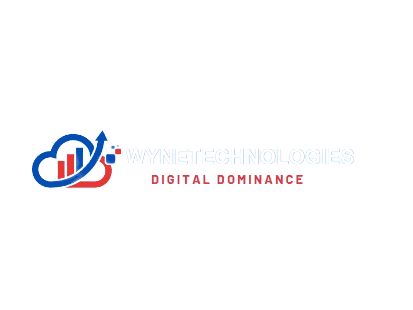SEO vs. PPC: What Are They and When to Invest
When it comes to digital marketing, businesses are often faced with a crucial decision: Should they invest in Search Engine Optimization (SEO) or Pay-Per-Click (PPC) advertising? Both strategies have their strengths and weaknesses, and the right choice depends on your business’s marketing goals. In this blog, we’ll explore what SEO and PPC are, how they work, and when you should invest in each to maximize your online presence.
What Is SEO?
The Role of SEO in Digital Marketing
Search Engine Optimization (SEO) is the process of optimizing a website to improve its visibility on search engine results pages (SERPs) for specific keywords. The goal is to create an SEO-friendly website that ranks higher organically without having to pay for traffic.
An SEO strategy typically involves several tactics such as content creation, keyword integration, on-page optimization, and technical SEO improvements. The primary goal is to improve search engine ranking to attract organic visitors who find your website via search engines like Google or Bing.
The Long-Term Benefits of SEO
SEO is known for delivering long-term results. Once a website gains traction in search engine rankings, the SEO long-term effect can lead to a steady stream of organic traffic. Unlike paid ads, SEO doesn’t require continuous investment to maintain visibility, making it a sustainable strategy for businesses focused on long-term growth.
However, achieving high rankings takes time, sometimes months, and results are not immediate. Businesses looking for immediate leads and sales may find SEO a slow route in the short term.
What Is PPC?
Understanding Google Ads and PPC Advertising
Google Ads is one of the most popular platforms for Pay-Per-Click (PPC) advertising. In PPC, advertisers bid on specific keywords, and their ads appear on Google search result pages and other sites within the Google network. Advertisers pay a fee every time someone clicks on their ad, hence the term “pay-per-click.”
PPC is a form of online advertising that provides immediate visibility and drives targeted traffic to your website. The advantage of PPC over SEO is its ability to generate quick results. Whether you’re launching a new product or trying to boost an event, PPC can help you achieve short-term marketing goals efficiently.
Ad Targeting with Google Ads
Google Ads offers advanced tools for ad targeting with AdWords. You can segment your audience by location, demographics, interests, and behaviors to ensure your ads reach the right people. PPC allows businesses to appear on Google search result pages immediately, giving them the ability to promote sales, services, or limited-time offers.
While PPC provides instant results, it’s also a continuous investment. Once the ad budget runs out, the traffic stops. This makes PPC more suitable for short-term campaigns or businesses with larger marketing budgets.
SEO vs. PPC: What’s the Difference?
Organic Traffic vs. Paid Traffic
The key difference between SEO and PPC lies in how traffic is acquired. SEO focuses on generating organic traffic, where visitors find your site through non-paid search engine results. PPC, on the other hand, generates paid traffic, where visitors arrive via paid advertisements. Both strategies have their unique advantages and should be considered based on your goals.
SEO Long-Term Effect vs. Immediate PPC Results
SEO offers long-term benefits through sustained improvements in search rankings, whereas PPC delivers immediate visibility. SEO builds trust and credibility, as users often see higher-ranked organic listings as more reliable. However, it takes time to implement and see results from an SEO strategy.
PPC provides instant access to top positions on Google, helping you reach users who are ready to make purchasing decisions quickly. However, PPC requires ongoing investment, and once you stop paying for ads, your visibility disappears.
Paid Ads vs. Organic Ranking: Which to Choose?
Deciding between paid ads vs. organic ranking depends on several factors. If you have time and want to build long-term brand authority, SEO is the better option. On the other hand, if your goal is to drive immediate traffic or you have a limited-time offer, PPC can deliver fast results.
A balanced approach—leveraging both SEO and PPC—can be highly effective. SEO can work to build your brand’s authority and drive organic traffic, while PPC can help you achieve short-term gains.
SEO vs. Google Ads for Business: Which Is Best?
Defining Your Marketing Goals
Your decision to invest in either SEO or PPC should align with your marketing goals. If your primary goal is sales and leads generation, PPC can provide the quick returns you need by targeting customers who are ready to convert. By using Google Ads, you can tailor your campaigns to reach the most relevant audience and boost your online exposure.
If you’re more focused on boosting online exposure over the long term and want to increase organic traffic without constant ad spend, SEO is a more cost-effective approach. An SEO-friendly website with quality content and well-integrated keywords will steadily improve search engine rankings and generate traffic over time.
SEO Strategy vs. PPC Advertising: When to Invest
- When to Invest in SEO:
SEO is ideal for businesses that want to build a long-term online presence and don’t need instant results. It’s great for industries where customers research before purchasing, as SEO can help your site appear in the early stages of the buying journey. Investing in SEO is particularly important if you’re looking to build brand authority and drive consistent, cost-effective traffic. - When to Invest in PPC:
PPC is perfect for time-sensitive campaigns, such as sales promotions or product launches. It’s also a strong option for businesses in highly competitive industries where organic ranking is hard to achieve. PPC allows you to target specific customer segments, ensuring that your ads reach the right people at the right time. If your business thrives on short-term wins, PPC is an ideal solution.
Conclusion: Balancing SEO and PPC for Maximum Results
Both SEO and PPC have their unique strengths, and the best approach often involves a combination of both. SEO provides long-lasting benefits by driving organic traffic, while PPC ensures immediate visibility and fast results.
To determine the best investment for your business, consider your marketing goals, budget, and the urgency of your campaigns. If you’re focused on sales and leads generation, a mix of both SEO and PPC can help you achieve a balance between organic traffic vs. paid traffic. In the end, combining SEO for long-term growth with PPC for quick wins ensures that you are reaching your full marketing potential.






